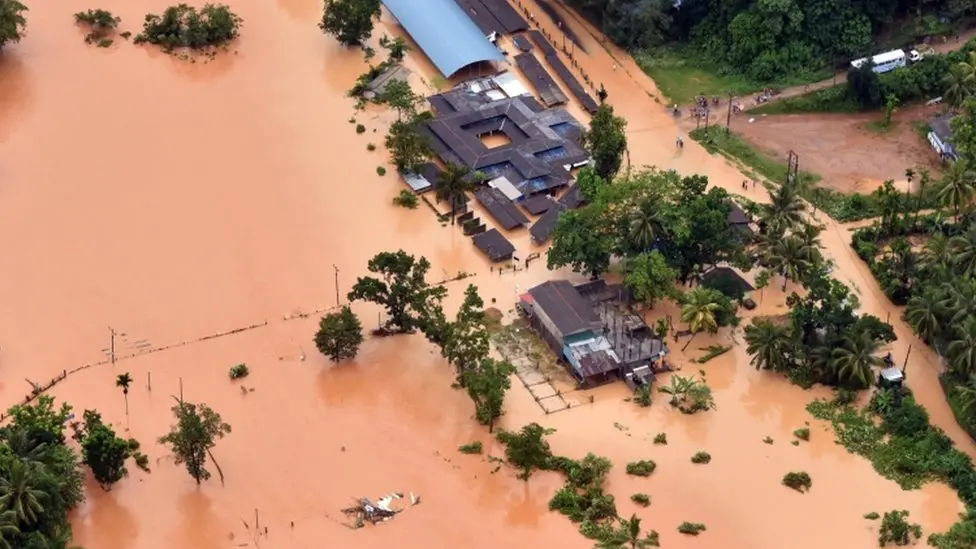Together we have supported 58 people through 41 donations
We are supporting 113 trusted and verified non-profits
Current Appeals
See all



Let’s ensure communities get exactly what they require.
Together we meet unmet needs.
See What’s NeededMeet the current need
Filter
See all
Hardware voucher
Quantity Needed: 95
KiwiHarvest is the largest Food Rescue Organisation in New Zealand. We rescue good food that would otherwise go to landfill, sort, repackage and deliver to 235+ recipient agencies throughout New Zealand. Our Auckland Warehouse urgently needs flatpack boxes / cartons to enable our volunteers to package the rescued food for handing out to our recipients. Our volunteers package on average 3150 kilograms of food a day, the equivalent of 7000 meals. We couldn't do this without people.. and boxes!
Bed set - sheets, blanket
Quantity Needed: 74
Sewa Development Trust Sindh (SDTS) is requesting 100 bed linen sets (including bed sheet and blanket – toddler size) to support 100 homeless children currently residing in a shelter home in Khairpur, Sindh, Pakistan.<br /><br />These children come from extremely vulnerable backgrounds and lack access to basic sleeping essentials. Providing proper bed sheets and blankets will ensure warmth, hygiene, dignity, and improved sleeping conditions, particularly during cold weather and seasonal changes.<br /><br />Cost Details (Local Value in AUD):<br /><br />Cost per bed set (sheet + blanket, toddler size): AUD 25<br /><br />Quantity requested: 100 sets<br /><br />Total Cost: AUD 2,500<br /><br />This support will directly benefit 100 homeless toddlers by providing them with safe, clean, and comfortable bedding.<br /><br />We sincerely appreciate the generosity of donors and the support of the Recovere community in helping us meet this urgent need.
Feminine hygiene products
Quantity Needed: 900
More than 300 girls at Kilimani Primary School in Elmdy, Isiolo County are facing a quiet but devastating barrier to their education. Because of extreme poverty, many cannot afford sanitary pads. As a result, they miss school each month, fall behind in their studies, and in some cases become vulnerable to exploitation or early marriage simply to meet this basic need. The PAD Drive Campaign seeks to provide sanitary pads, menstrual hygiene education and mental health support so these girls can attend school with confidence and dignity. By meeting this essential need, we help protect their safety, strengthen their wellbeing and keep them learning. When we stand with these girls, we are not just providing supplies. We are safeguarding their futures and affirming their right to education, opportunity and hope.
Mattress
Quantity Needed: 18
Alupe Special School is home to about 200 children living with different disabilities. They are beautiful children. Bright. Loving. Full of life. And they are surrounded by teachers and staff who give more than their job requires. They give their hearts.<br /><br />This boarding school runs on faith. Many parents can barely afford school fees. Government grants delay. Some families cannot even afford transport to visit their children, so the school has quietly become a safe place for many who have nowhere else to go. Although it was established for the hearing impaired, it now cares for children with autism, cerebral palsy, intellectual disabilities, and many others who need support every single hour of the day. The staff stretch themselves thin. Management is often away knocking on doors, visiting companies and other schools, asking for food, soap, toothpaste, sanitary towels. They are constantly looking for help.<br /><br />You may wonder why those basic needs were not the first thing we appealed for as Kosi Africa. The truth is they are important, but there is something just as urgent that has been overlooked for years. The children sleep on thin, worn out mattresses. They share a single mattress. Some sleep on the floor. One bed was slanting. Others had metal wires sticking out in ways that could easily cause harm. After a full day of learning, this is where they lay their heads at night.<br /><br />Imagine being a child who already faces so much, then going to sleep in those conditions. Rest should not be a luxury. It should not be something they have to endure. They need real rest. Let us give them the kind of rest every child deserves.
Computer
Quantity Needed: 24
The project aims to enhance the employability and socio-economic inclusion of underserved youth through a structured, transnational digital capacity-building initiative and advocacy for it. Through mentorship programs, skills training, and community engagement initiatives, we equip young people with the knowledge, confidence, and resources they need to thrive.
Bib
Quantity Needed: 30
Many teenage girls are becoming mothers before they’ve had the chance to finish school or build a future. Deep poverty leaves families struggling, and young girls often feel they have no choice but to prioritise survival over education. Without support, these girls face isolation, lost opportunities and a cycle of hardship that continues into the next generation. Mthunzi Foundation is seeking baby bib donations as part of a broader effort to support teenage mothers with education, emotional care and skills training. With practical help and community support, these young women can rebuild confidence, continue learning and create brighter futures for themselves and their children.
Our change makers
Sponsored by




